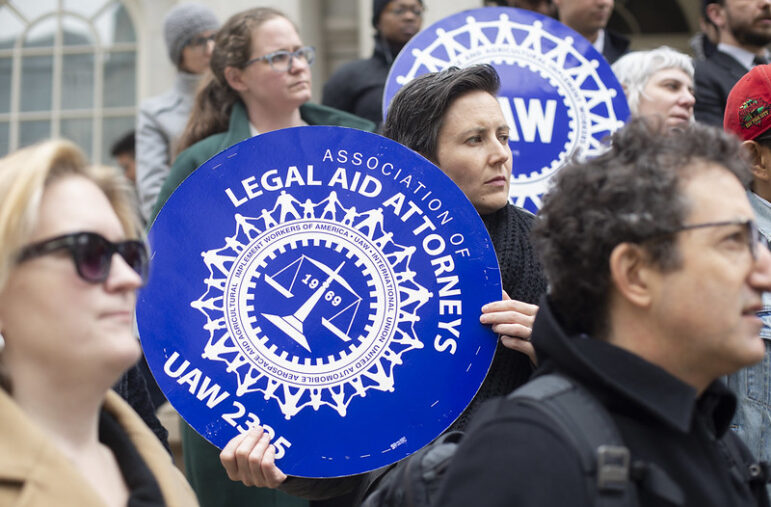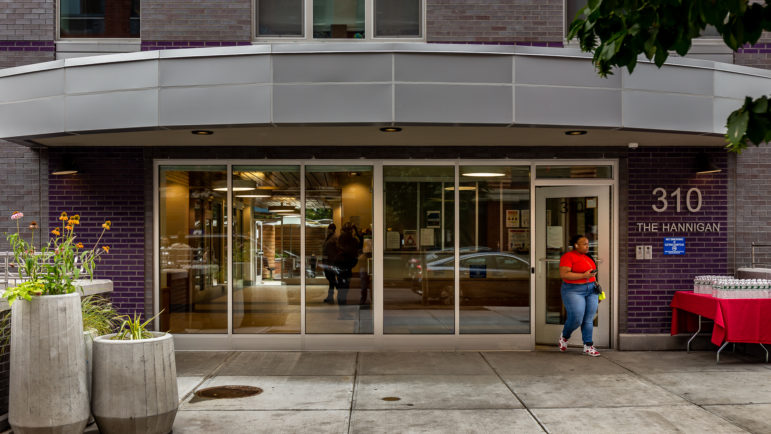“Arriba las mujeres,” Yolanda Torres cheers–“Women arise”–as she and four other women haul huge Dell computer boxes up onto their shoulders and up the stoop into their apartments on West 140th Street. Torres and many of her neighbors are becoming first-time computer owners. Just a few months after moving into the five-story cooperative that they spent thousands of dollars and hours rehabbing, the hope to use their new appliances to run their building better.
Their building is the first of about 70 low-income coops that will receive computers and internet access under the Urban Homesteading Assistance Board’s Connecting Communities program. Funded by a $450,000 grant from the U.S. Department of Commerce’s Technical Opportunities Program, with one-to-one community matching funds, the initiative aims to give residents the software and hardware to both learn job skills and improve their homes.
“The vision is to create a technological ecosystem for cooperative buildings to better manage their budgets and mobilize to improve their communities,” says Jared Goldstein, UHAB’s digital programs development director. Since 1973, UHAB has helped set up 1,200 low-income coops. By wiring a cluster of 11 buildings in West Harlem with cable modems, for starters, UHAB hopes to ensure that tenants can stay up to date on legislation, housing training sessions and techniques to run their homes smoothly.
In addition t sending members regular email updates on pertinent housing information, UHAB established a web site that will post resources and host chat rooms in which tenant leaders from different buildings can exchange ideas and ultimately, Goldstein hopes, create neighborhood councils.
After fully wiring those 11 buildings, at a cost of about $5,000 each (the broadband will cost each tenant about $8 a month), UHAB also plans to give computers–donated by Per Scholas, a nonprofit technology provider–and wiring to tree residents in each of another 58 buildings.
But UHAB’s buildings could be one of the last to benefit from the federal Technical Opportunities Program, which has supported 500 such projects nationwide since 1994. President George W. Bush recently called for cutting its entire $12 million budget. At press time, some members of Congress were working to restore the funding.
“It’s a shame because it’s not for a lack of money, but a lack of priorities,” says Torres. “The government takes away programs that help the poor people lift themselves up.”








